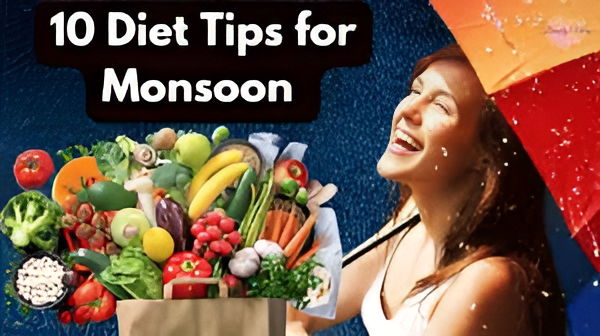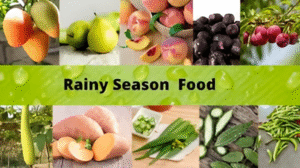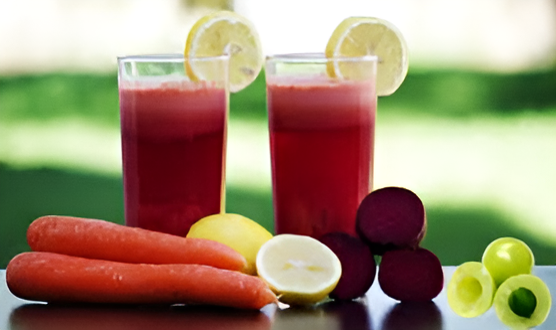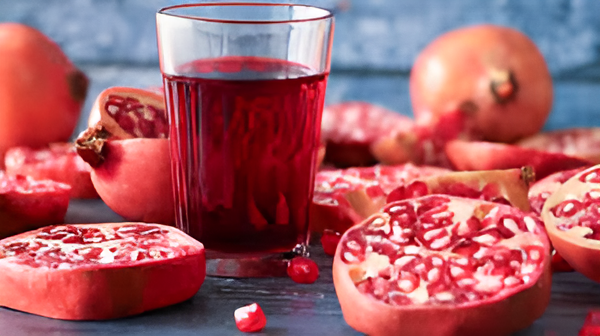
Much-needed respite from the intense summer heat is provided by the monsoon season. However, there is a higher chance of infections, stomach problems, and reduced immunity when there is a chilly breeze and fresh rain. For bacteria, viruses, and fungi, the wet weather is the ideal environment. For this reason, maintaining a healthy and active lifestyle during the monsoon season requires adhering to the proper diet.
The healthiest foods to eat and avoid during the rainy season will be discussed in this article, along with helpful advice on how to shield your body from seasonal ailments.

🥗 Why a Monsoon Diet is Important
During monsoon:
- The digestive tract deteriorates.
- Food deteriorates more quickly in humid environments.
- There is an increased risk of water-borne illnesses.
Hence, a mindful diet during this season can:
- Boost immunity
- Prevent infections
- Improve digestion
- Maintain energy levels
✅ What to Eat in Monsoon
1. Seasonal Fruits
- Select fruits such as apples, pears, plums, and pomegranates.
- These aid in the defense against infections and are high in antioxidants.
🛑 Steer clear of water-rich fruits like muskmelon and watermelon since they might impede digestion and create bloating.
2. Warm and Light Meals
- Savor warm, freshly prepared dishes like vegetable upma, moong dal soup, or khichdi.
- These are nourishing and simple to digest.
3. Garlic and Ginger
- These possess inherent antibacterial qualities.
- To boost your immune system, add them to teas, soups, or curries.
4. Turmeric
- a potent immune-boosting and anti-inflammatory.
- In the morning, mix turmeric into warm water or Golden Milk.
5. Herbal Teas
To ease congestion and calm the stomach, sip on ginger tea, lemongrass, or tulsi.
6. Probiotics
Add buttermilk, yogurt, or curd to help with digestion and intestinal health.
❌ Foods to Avoid During Monsoon
1. Leafy Vegetables
Despite their health benefits, leafy greens like lettuce and spinach can harbor bacteria and muck during the rainy season. Wash them well in salt water if you plan to eat them.
2. Street Food
- Steer clear of the pakoras, golgappas, and chaats that are sold outside.
- Because of tainted water and unsanitary circumstances, they can result in food poisoning.
3. Raw Salads
To eliminate bacteria, use sautéed or moderately steamed vegetables rather than raw ones.
4. Seafood
Steer clear of seafood during the monsoon season since fish and prawns are more likely to be contaminated during the mating season.
5. Excessive Dairy
Cream and paneer are heavy dairy products that might slow down digestion.
💧 Hydration Tips
- Only drink water that has been boiled or filtered.
- Infuse your water with herbal infusions, such as mint leaves or fennel seeds.
- Drink plenty of water, but stay away from cold or fizzy beverages.
💡 Extra Tips for a Healthy Monsoon
- Use baking soda solution or salt to effectively wash fruits and vegetables.
- Eat as much as you can at home this season and avoid eating out as much as you can.
- Keep meals light and easy to digest by using less oil and seasonings.
- Eat in smaller portions to lessen the strain on your digestive system.
- Maintain good hand hygiene by washing your hands before eating to avoid getting sick.
🧘 Boost Immunity with Lifestyle Habits
-
Exercise indoors – Try yoga or home workouts.
-
Get enough sleep – Aim for 7-8 hours daily.
-
Avoid stress – Practice deep breathing or meditation to stay calm and healthy.
📌 Conclusion
Although the rainy season is lovely, maintaining good health during this time calls for extra attention. You may enjoy the monsoon without becoming sick by making minor changes to your food and way of life. Prioritize foods that are light, freshly prepared, and immune-boosting. Steer clear of raw and unclean food, drink enough of water, and use herbs and natural therapies to help your health.
Enjoy the rain, eat wisely, and be safe!
For more Information : Health tips , Entertainment, food Technology







